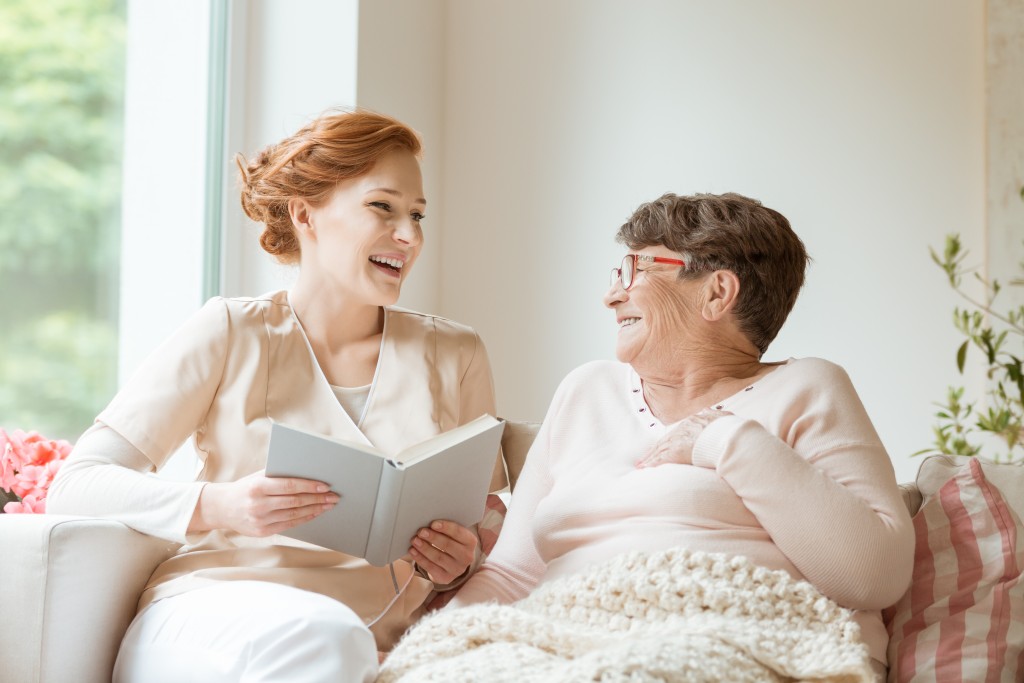Life can get too overwhelming sometimes that we neglect the older members of our family. It’s understandable—we have plenty of responsibilities with our partner and kids and especially with our work, that it’s easy to forget that we also have family members who are growing older and might need more of our time and attention. Even before the pandemic, the National Institute on Aging (NIA) already reported that loneliness and social isolation caused more health risks for the older members of our community.
Imagine how the pandemic aggravated this trend: The COVID-19 crisis has separated many of us from our loved ones, and especially from the senior or elderly members of our family as we had to keep our distance to keep them safe. If you want to reconnect with them this 2021, here are some tips for fostering genuine connections and relationships with your elderly parents or relatives.
Be intentional
There are no two ways about it: If you want to stay connected with your elderly parents or relatives, you need to make the effort to do so. All healthy and loving relationships don’t just work themselves out; it takes a lot of hard work and commitment to create a connection with someone, and even more so to maintain that connection.
When was the last time you tried to engage your elderly parent or relative? Even something as simple as asking them to tell you stories about them growing up or getting old can show them that you care about their story and what they have to say. At the same time, you also gain a lot of wisdom and insight from their experience—it’s a win-win for all parties.
Visit them
Here are some tips to ensure that you can keep them safe from the virus when you visit them:
- Quarantine for two weeks before going to visit. It may seem like too much, but you never know when you might be carrying the virus. Studies found that about 1 in 5 COVID-19-positive patients remain completely asymptomatic, so to ensure that you won’t be exposing your elderly parent or relative to the virus, stay home for at least 14 days before you go see them. Don’t go if you’re not feeling well.
- If they’re staying in a residential care facility, be sure to follow their health and safety guidelines when you visit. This might include a negative COVID-19 test or going on quarantine for 14 days—whatever it is, be sure to follow their instructions to the latter. They know what’s best not just for your parent or relative but also for all of their other elderly guests.
- Once you see your elderly parent or relative, keep a distance of at least six feet. If their caretaker allows it, open a window to improve the air circulation. Keep your mask at all times and no hugs or kisses for now.
- Keep an alcohol-based sanitizer in your person at all times, and use it before you touch any of your parent or relative’s belongings.

These health and safety guidelines may seem like overkill, but we need to do all that we can in our power to ensure that they’re protected from the virus.
Stay connected through technology
If your elderly parent or relative doesn’t have access to gadgets yet, provide them with entry-level ones that they can learn easily and comfortably.
If they already know their way around Zoom and other video conferencing apps, make sure to call them at least once a week just to catch up on their health and what they’ve been doing, especially if they live alone. Make sure that they have everything they need, whether it’s groceries and other daily tasks like sending their mail.
Make sure that the relationship is two-sided by sharing what’s going on with your life as well. Learn the art of knowing when it’s time to listen and when it’s time to share; feel out what mood they’re in for the day and how you can help make them feel better.
Send them gifts to express that you remember them
If you’re not able to visit them or if the state or their home care does not allow it yet, send them simple gifts like a basket of fruits or a beautiful bouquet. Even a simple token of appreciation can go a long way in reminding them that someone in their family is thinking of them and rooting for their health.
Because social isolation and loneliness can pose significant risks to their health, you are also helping prolong their life by staying connected with them. When you fight for your relationship with them, you also fight alongside them for their health and wholeness.

